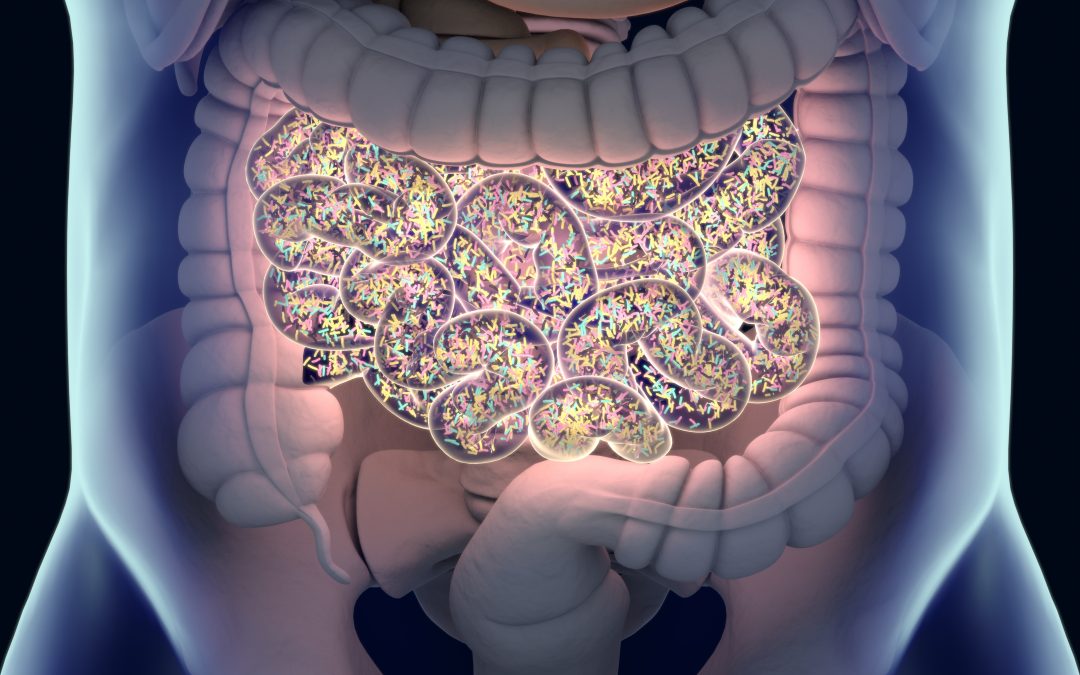WHAT IS GUT MICROBIOME?
Anaerobic bacteria make up the predominant forms of life in the human body. Anaerobic bacteria are bacteria that grow in the absence of oxygen. The terminal ileum and colon contain the highest number of anaerobic bacteria. The most important and frequent anaerobic bacteria are Bacteroides spp, Prevotella spp, Clostridium spp, and Peptostreptococcus spp. The composition of each individual’s gut microbiome is influenced by various factors such as genetics, geography, ethnicity, diet, therapy among others.
HOW DOES GUT MICROBIOME WORK?
The lumen or content of the intestinal tract in humans is never sterile, however, in healthy individuals, the lining of the intestine is usually free of bacteria. The intestinal tract represents an interface between the external environment which we ingest, and the body. Normally the gut microbiome is separated from the intestinal lining by a mucus barrier. At each segment of the intestinal tract, the level of bacteria in the lumen of the intestine depends on whether suppression or separation is dominant. Where there is active suppression, the bacteria content is low. For example, because of the gastric acid barrier in the stomach, we find relatively small numbers of bacteria which is usually swallowed salivary bacteria. In the small intestine, the organisms found are usually passing through unless there is an interruption to the flow which can result in bacterial overgrowth.
In the large intestine or colon, bacteria present (about 3,000 – 5,000 species, 90% of which are anaerobes) are used to breakdown what’s left of ingested food that has not been broken down at the other segments of the intestinal tract. Peristalsis causes the bacteria to be mixed with the fiber in the colon and facilitates growth of the bacteria. The bacteria help to reduce the mass of the feces as water and electrolytes get reabsorbed into the body. There is very little mechanism to suppress the growth of the bacteria in the colon, instead there is a lot in place to separate the bacteria from contact with the lining of the colon. Where there is more separation dominating, the bacteria content can be very high.
“WHY” IS THIS IMPORTANT FOR YOU?
- Several substances can cause breakdown of the mucus barrier of the intestine such as cigarette smoking, stress and many more and the disruption in the barrier can result in the bacteria in the lumen gaining access to the submucosal lining of the intestinal tract and generating an immune response reaction.
- Gut microbiome have been implicated in the development of numerous inflammatory arthritis due to breakdown in the mucus barrier by the microbiome.
- There is speculation that overgrowth of bacteria in the small intestine may play a role in irritable bowel syndrome. Bacterial overgrowth in the small intestine may also be responsible for malabsorption of nutrients from ingested food.
- Gut microbiome have been thought to possibly influence food allergy due to dysbiosis.
- The gut microbiome may be a contributor to obesity, type 2 diabetes.
- The Mediterranean Diet has been shown to influence the gut microbiome.
The gut microbiome acts as a mediator that can facilitate the therapeutic potential of certain beneficial contents of our ingested food and thereby help protect against certain chronic conditions e.g ingesting foods such as vegetables and fruits which are rich in anthocyanins which improve the population of beneficial bacteria in the gut.
REFERENCES:
https://www.uptodate.com/contents/anaerobic-bacteria-history-and-role-in-normal-human-flora?search=GUT%20microbiome&source=search_result&selectedTitle=1~150&usage_type=default&display_rank=1
https://pubmed.ncbi.nlm.nih.gov/36927343/
https://www.uptodate.com/contents/obesity-genetic-contribution-and-pathophysiology?search=GUT%20microbiome&source=search_result&selectedTitle=3~150&usage_type=default&display_rank=3

